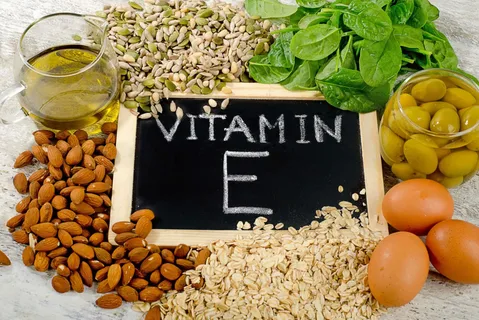Vitamin E is a vital nutrient known for its antioxidant properties, playing a significant role in protecting cells from oxidative damage and supporting overall health. With a variety of vitamin E supplements available in the market, choosing the best one can be challenging. This guide aims to provide comprehensive information on how to select the best vitamin E supplement for your needs.
Understanding Vitamin E
What is Vitamin E?
Vitamin E refers to a group of eight fat-soluble compounds, including four tocopherols (alpha, beta, gamma, and delta) and four tocotrienols. Among these, alpha-tocopherol is the most biologically active form and is commonly found in dietary supplements.
Benefits of Vitamin E
Vitamin E is essential for various bodily functions, including:
- Protecting cells from oxidative stress
- Supporting immune function
- Promoting skin health
- Enhancing eye health
- Reducing inflammation
Types of Vitamin E Supplements
Natural vs. Synthetic Vitamin E
Vitamin E supplements are available in both natural and synthetic forms. Natural vitamin E (d-alpha-tocopherol) is derived from plant oils and is more biologically active compared to synthetic vitamin E (dl-alpha-tocopherol), which is produced from petrochemicals.
Mixed Tocopherols
Some supplements contain mixed tocopherols, providing a combination of alpha, beta, gamma, and delta tocopherols. These supplements offer a broader spectrum of antioxidant protection and are closer to the natural form of vitamin E found in food.
Tocotrienols
Tocotrienols are less common in supplements but are gaining attention for their unique health benefits, including potential neuroprotective and anti-cancer properties. They are often found in products that combine tocopherols and tocotrienols.
Factors to Consider When Choosing a Vitamin E Supplement
Bioavailability
Bioavailability refers to how well your body can absorb and use the supplement. Natural forms of vitamin E generally have higher bioavailability compared to synthetic forms. Look for supplements labeled as “d-alpha-tocopherol” for better absorption.
Dosage
The recommended dietary allowance (RDA) for vitamin E varies by age and sex. For adults, the RDA is 15 mg (22.4 IU) of alpha-tocopherol per day. Most vitamin E supplements contain doses ranging from 100 IU to 1000 IU. Consult your healthcare provider to determine the appropriate dosage for your needs.
Purity and Quality
Choose supplements from reputable brands that adhere to good manufacturing practices (GMP). Look for third-party certifications such as NSF International, USP, or ConsumerLab to ensure the product’s purity and quality.
Form of Supplement
Vitamin E supplements come in various forms, including softgels, capsules, tablets, and oils. Softgels are popular due to their ease of swallowing and quick absorption. Choose the form that best suits your preference and lifestyle.
Additional Ingredients
Some vitamin E supplements contain additional ingredients such as other antioxidants (vitamin C, selenium), carrier oils (soybean, sunflower), or fillers. Check the ingredient list to ensure there are no allergens or unnecessary additives.
Potential Side Effects and Interactions
Common Side Effects
Vitamin E is generally safe when taken within the recommended dosage. However, high doses may cause side effects such as nausea, diarrhea, stomach cramps, fatigue, or blurred vision.
Interactions with Medications
Vitamin E may interact with certain medications, including blood thinners (warfarin), statins, and chemotherapy drugs. Consult your healthcare provider before starting a vitamin E supplement, especially if you are taking any medications.
Safety Considerations
High doses of vitamin E (over 400 IU per day) have been linked to an increased risk of bleeding and other health issues. It is important to follow the recommended dosage and consult your healthcare provider if you have any concerns.
Choosing the Right Brand
Research and Reviews
Do thorough research and read customer reviews to gauge the effectiveness and quality of the supplement. Trusted brands often have positive reviews and a strong reputation in the market.
Price and Value
While price is an important factor, it should not be the sole determinant. Compare the price per serving and consider the quality, bioavailability, and additional ingredients when assessing the value of the supplement.
Customer Support
Choose brands that offer good customer support and have a clear return policy. Reliable customer service can help address any concerns or questions you may have about the supplement.
FAQs
What is the best form of vitamin E to take?
The best form of vitamin E to take is natural vitamin E (d-alpha-tocopherol) due to its higher bioavailability. Mixed tocopherols, which include other forms of vitamin E, can also provide additional health benefits.
How much vitamin E should I take daily?
The recommended dietary allowance (RDA) for vitamin E is 15 mg (22.4 IU) per day for adults. However, individual needs may vary, so it’s best to consult your healthcare provider for personalized advice.
Can I get enough vitamin E from my diet?
Yes, you can get sufficient vitamin E from a balanced diet that includes foods like nuts, seeds, vegetable oils, green leafy vegetables, and fortified cereals. However, some people may require supplements to meet their needs.
Are there any side effects of taking vitamin E supplements?
Vitamin E is generally safe when taken within the recommended dosage. However, high doses may cause side effects such as nausea, diarrhea, stomach cramps, fatigue, or blurred vision.
Can vitamin E interact with other medications?
Yes, vitamin E can interact with certain medications, including blood thinners, statins, and chemotherapy drugs. Always consult your healthcare provider before starting a vitamin E supplement if you are on medication.
Is synthetic vitamin E effective?
Synthetic vitamin E (dl-alpha-tocopherol) is less bioavailable than natural vitamin E (d-alpha-tocopherol). While it can still provide antioxidant benefits, natural vitamin E is generally preferred for better absorption and effectiveness.
What are mixed tocopherols?
Mixed tocopherols are a blend of different forms of vitamin E, including alpha, beta, gamma, and delta tocopherols. They offer a broader spectrum of antioxidant protection and are more similar to the natural form of vitamin E found in food.
Can I take vitamin E supplements if I have a health condition?
If you have a health condition, it’s important to consult your healthcare provider before taking vitamin E supplements. Certain conditions and medications may interact with vitamin E, so professional advice is crucial.
What is the difference between tocopherols and tocotrienols?
Tocopherols and tocotrienols are both forms of vitamin E. Tocopherols are more common and widely studied, while tocotrienols are gaining attention for their unique health benefits, including potential neuroprotective and anti-cancer properties.
How do I know if a vitamin E supplement is high quality?
Look for supplements from reputable brands that adhere to good manufacturing practices (GMP) and have third-party certifications such as NSF International, USP, or ConsumerLab. Research and read customer reviews to gauge the product’s quality.
Conclusion
Choosing the best vitamin E supplement involves considering factors such as bioavailability, dosage, purity, form, and additional ingredients. Understanding the differences between natural and synthetic forms, as well as the benefits of mixed tocopherols and tocotrienols, can help you make an informed decision. Always consult your healthcare provider before starting any new supplement, especially if you have existing health conditions or are taking medications. By selecting a high-quality vitamin E supplement, you can support your overall health and well-being effectively.
- Cheek Filler Near Redhill, Surrey - May 1, 2025
- Anti-Wrinkle Treatments Near Shackleford, Surrey - April 29, 2025
- How CBD Gummy Edibles Can Enhance Your Exercise Routine - April 28, 2025

